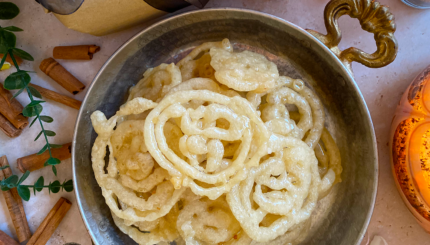We’ve all had those teachers that go above and beyond; in my life, an educator named Kathy Mellette soars with the best of them. She made a huge impact on my young life. Among the many creative projects she coordinated to connect students to the real-life applications of her science lessons was the x-Stream Team.
Every couple of weeks, our group of nature-loving 6th grade nerds would march to the creek in the woods behind our rural north Georgia school to search for indicators of a healthy stream– happy salamanders, wriggling crawdads, balanced pH levels, an assortment of buzzing flies. I remember gleefully stripping off my sneakers and socks to carefully toe across the moss-covered rocks. Mrs. Mellette taught us that environmental scientists don’t just observe nature, they take care of it. Better yet, they get to play in it!
Meanwhile, each year at Rosh Hashanah services, I eagerly awaited tashlich, because it was the closest that religious services ever got to playing in a stream. Traditionally, tashlich entails symbolically imbuing something like bread crumbs with our sins from the past year, then casting those crumby sins into a body of water. I could hardly keep myself from skipping ahead of the group as my family transitioned from the outdoor chapel to the lakeside of the mountain summer camp where my small congregation met. Beneath tall pines, we sang songs and read poems to prepare us to cast our sins into the gently moving water just beyond the campfire circle.
But then, thanks to Mrs. Mellette and my ongoing eco-education, I eventually learned that throwing breadcrumbs into water isn’t a great idea. It’s bad for the ducks, bad for the ecosystem—not something we should be doing.
All these years later, as I weighed my options for a meaningful High Holy Day experience in the era of COVID-19, I wracked my brain for physically distant ways to observe that wouldn’t involve staring at a screen. My computer has become my work, school, and social space… I couldn’t bear it absorbing my spiritual space as well.
I remember that my local river-keeper here in Mississippi has an annual clean-up that unfailingly lands on the High Holy Days. This year, instead of being an inconvenience, it’s actually perfect. What better way to re-center myself in the real world than by going out and getting my hands dirty?
My initial thought was, “Great! I’ll already be at the river. I can do tashlich while I’m there.”
A beat later, I realized the irony of chucking bits of bread into the very river I was signing up to clean.
Mrs. Mellette would not have approved of all the Wonder Bread that we tossed to the snapping turtles and guppies in that lake years ago when I celebrated Rosh Hashanah in Georgia. This year, I can do better.
Rather than casting my sins (in the form of glutinous globs) into the life force that nourishes my community, I will don some sturdy gloves, drench myself in citronella-based bug-spray, and set about removing human sins from the water. I am committing myself to a reverse tashlich.
Taking ownership of our mistakes seems to be a theme this year. In fact, communal responsibility has never felt so constantly vital as it does in the times of Coronavirus. If I slip up by not wearing a mask or failing to wash my hands properly, I’m not the only one who suffers the consequences. I am responsible for creating a safe and holy space for my entire community. Likewise, it is upon me to help right the wrongs of others to the extent that I am able.
We cannot simply shed our failings and watch them float downstream; we must deal with them head-on, or else it will be upon the next generation to manage all of our wild and abandoned sins on their own.



